Eleven historical novels (including a children’s book) have been reviewed for the challenge in January and they are quite a diverse range. Three are set in medieval times.
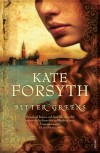
The ever popular novel Bitter Greens has been reviewed this time by Jo from Wallaby. She found: “The craftsmanship of this book is quite incredible. It is a work of beauty, clearly based on strong research. In exploring multiple concepts of restriction and restraint, it also allows its characters and readers to understand the meaning of freedom in various forms – and of responsibility and, to some extent, love.” I love good research so will have to add this book to my enormous To Be Read pile.
Jackie French has a new book out – I am Juliet. Louise from A Strong Belief in Wicker says in her blog: “I am Juliet is an amazing first person account from young Juliet Capulet herself. Within pages I was in the thrall of Juliet’s world. Juliet is a lonely young girl, cared for by servants, being educated as befitting a young lady of her station, her parents distant. It’s a beautiful evocation of the time.” Louise also reviewed a children’s book Withering-by-Sea by Judith Rossell which she loved. “Withering-by-Sea is the name of the British seaside town where Stella Montgomery resides with her three aunts. They all live in the imposing Hotel Majestic.”
Wild Wood by Posie Graeme-Evans is told in two timeframes which is not unusual – what is unusual is that the present time frame is 1981 over thirty years ago. “In a London hospital, temporarily unable to speak, Jessie Marley uses her left hand to write. But Jesse’s right-handed. And as if her fingers have a will of their own, she begins to draw places she’s never seen, people from another time—a castle, a man in medieval armour. And a woman’s face.” Jennifer from Goodreads writes: “I enjoyed this story, and kept turning the pages trying to work out how (and through whom) Jesse was connected to Hundredfield. There’s mystery, a hint of romance, as well as some interesting characters and events. The shifts between past and present maintained the tension and kept my interest. There are a number of twists and turns, and plenty of surprises.”
Burial Rites by Hannah Kent has been, of course, reviewed many times during 2014. This time we have a male reviewer Sean from The Bookonaut who astutely advises: “Try to ignore the hype, come to Burial Rites in the expectation of a moving, well executed story. A story that might cause you some reflection but that will definitely deliver you to another time and place.”
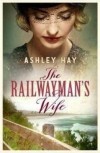 The Railwayman’s Wife by Ashley Hay also had a number of reviews last year. Elizabeth Jane Corbett writes: “…its clear, shining, cut-glass prose, lift the novel out of the ordinary. The railwayman’s wife is a homage to literature and, as such, is strengthened by references to novels and poetic works.” Not surprisingly it has won several awards.
The Railwayman’s Wife by Ashley Hay also had a number of reviews last year. Elizabeth Jane Corbett writes: “…its clear, shining, cut-glass prose, lift the novel out of the ordinary. The railwayman’s wife is a homage to literature and, as such, is strengthened by references to novels and poetic works.” Not surprisingly it has won several awards.
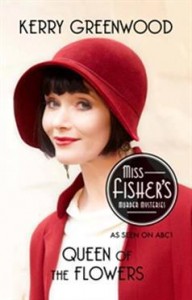
Sam of Sam Still Reading was a bit disappointed with the 14th instalment of Phryne Fisher – Queen of the Flowers by Kerry Greenwood. She writes, “The plot is a bit jumpy and there’s a lack of real mystery in the book.” This hasn’t put her off the series though. She’ll be back, she says, for more of Melbourne’s super sleuth.
Also set in in the 1920s, but in Sydney this time, is the classic Seven Poor Men of Sydney by Christina Stead reviewed by Jennifer of Goodreads. “…this novel constructs a portrait of seven poor men (and one woman) based on their personal and social relationships.” Jennifer found the book a challenging read. “This is one of those novels that made me stop frequently, to think about how life may have changed, or not, for the poor and the idealistic.”
Back to WWI of My Father’s War By Sophie Masson. “Annie’s father has been fighting in France but hasn’t been heard from in months. Annie’s mother – who is French herself – decides to take Annie and herself halfway across the world from Sydney to try and find him on their own.” Although Mel from Subversive Reader comments that parts of the book felt a little too convenient, she also writes that: “One of the striking parts of the book is that it tells stories you don’t always hear about. First and foremost, it’s the story of civilians trying to live their lives while the war looms so close nearby. It’s also a story of fighting in France – a topic often forgotten in classrooms and story telling in an Australia so focused on the Gallipoli campaign.”
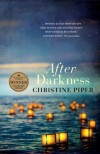 After Darkness by Christine Piper is set in WW2 “It is 1942 and Australia is in the midst of yet another war. The government is taking no chances and has rounded up anyone who is of the descent of the enemy: Japanese, German, Italian, etc and put them into internment camps.” Bree of 1 girl 2 many books writes: “I can’t imagine what it must have been like for some of these people, to be taken away from their homes of years (or in some cases, pretty much their whole lives) and taken to a remote camp in the desert.”
After Darkness by Christine Piper is set in WW2 “It is 1942 and Australia is in the midst of yet another war. The government is taking no chances and has rounded up anyone who is of the descent of the enemy: Japanese, German, Italian, etc and put them into internment camps.” Bree of 1 girl 2 many books writes: “I can’t imagine what it must have been like for some of these people, to be taken away from their homes of years (or in some cases, pretty much their whole lives) and taken to a remote camp in the desert.”
Come What May by Sherryl Caulfield is an interesting addition to the books reviewed for the challenge as it is actually set in Canada and is the second book in the Iceberg Trilogy. It just scrapes through the definition of historical novels – novels set pre mid 20th century. “In 1951, the summer of her eighteenth year, Gene embarks on a northern odyssey with her eldest brother, Jonathan. Under the northern lights they travel as part of a medical expedition to remote Cree settlements across the grand Canadian wilderness.” Kathryn from Book Date writes: “Come What May has taken me on a wide ranging journey, in terms of the large territory it covers in its Canadian setting and in the inner world of some of the characters. In the last book I was mesmerised by icebergs, this time round, the beautiful but harsh territory of the Canadian wilderness.”
Lots to enjoy here. I’m looking forward to seeing what our reviewers have been reading in February.
About Me:
My name is Debbie Robson and I am a bookcrosser, booklover and author. I love researching the 20th century and finding those small but relevant details that can make the past come alive. You can find me on twitter: lakelady2282


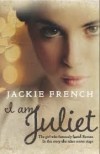
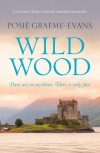
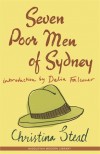
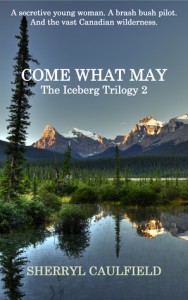




Lovely round-up Debbie. Thanks. I really must read Kate Forsyth this year. She keeps popping up and I keep not fitting he into my schedule. This must stop!
Yep! I have a policy. When certain books keep popping up there’s nothing to be done but read them.
Ooooh, historical fiction is my favourite genre, and I’m looking forward to reading Wild Wood next. Great wrap up!
Thanks so much Tracey. Love your blog name! I believe there is a virtual blog tour for Wild Wood beginning next month.
Thanks Debbie, if that’s the one being organised by Anna, then I’m on board for the tour 🙂 looking fwd to it.
Not sure who is doing it but my friend Angela S. Walton is part of the tour and has reviewed the book.
The Railwayman’s Wife was probably my favourite read from last year…and Bitter Greens was pretty high up the list the year before that.
Lots of great new reviews and books for me to consider here 🙂
Apologies to Booknaut – I cannot leave a comment on your blog. I seem to have an issue with all blogs who use intensedebate….this is what I tried to say….
I keep putting off reading this one for exactly the same reasons you did. One of my friends worked for Pan Mac the year they bid for and won this book…so I’ve been hearing the raves reviews for quite some time!
I’m sure I will read it at some point (certainly before the movie comes out!!)
Thanks for dropping in and reading anyway Brona.
Thanks Brona. I enjoyed the writing in The Railwayman’s Wife and I’m looking forward to reading Bitter Greens. It was an interesting range, wasn’t it?
Debbie, thanks for this – rich pickings for 2015 readings!
Thank you Ruth. I am merely the rounduperer.